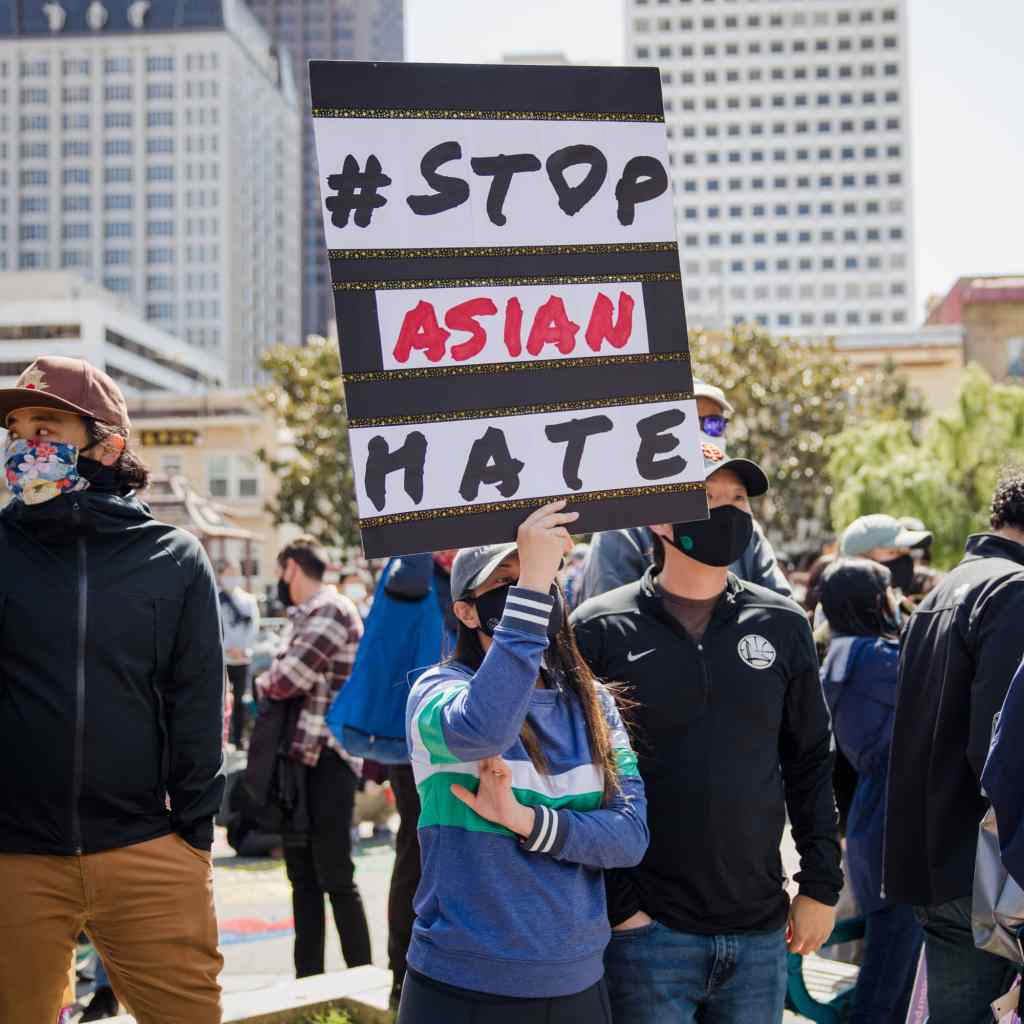The COVID-19 pandemic set off a wave of anti-Asian sentiment that resulted in an unprecedented number of hate crimes targeting Asian Americans. In the two years since COVID reached the US, I’ve been forced to watch as people from my community are physically assaulted, verbally harassed, and murdered because of their identity.
At first, I didn’t know how to react. I didn’t know whether I should cry, or talk to someone, or check social media to see what everyone else was doing to confront the violence. In many cases, I simply didn’t do anything. Even as I felt increasingly afraid of walking alone outside and experienced microaggressions myself, I refused to have conversations about the rise in APIA hate.
But over time, as I’ve been continuously bombarded with stories about Asian Americans who have been the victims of racist acts, I’ve been forced to process my feelings and find new ways to cope and heal. Here are some of the things that helped me over the past two years – while I know everyone’s journey is different, I hope they’ll help you, too.
1. Turn off social media.
Every time I opened Instagram or Facebook, my feed was flooded with posts about anti-Asian hate crimes. While these posts were often well-intentioned, I didn’t have the emotional bandwidth to process what I was reading. Instead, people’s efforts to raise awareness or share their stories only made me feel more anxious, isolated, and hopeless. And yet, I couldn’t stop scrolling.
“Social media content relies on eliciting strong emotional responses, such as anger, anxiety, and/or fear, in order to generate more views and comments – so sometimes, the only thing we can do is to limit our exposure to this content,” Jason Wu, PhD, a licensed psychologist at South Bay Psychological Services, says. Otherwise, you risk getting caught in a cycle that ultimately makes you feel even worse.
“Our brains are generally hardwired to seek negative events, because in the past, that strategy helped keep us safe from dangerous situations. However, the constant exposure to negative events through social media becomes self-reinforcing,” Dr. Wu says. “Doomscrolling can cause us more anxiety, stress, and fear, but then our brains start to focus more exclusively on bad news – and even have a harder time taking in any good news.” Once I turned off my phone and brought myself back to reality by spending time with friends and family, I started to feel some relief.
2. Know that your feelings are valid.
Even though I was deeply affected by the news cycle and had experienced microaggressions myself, I still constantly undermined my own thoughts and emotions by comparing my trauma to that of other people in the APIA community. I’d think, If others are dealing with physical harm or deep emotional trauma from the loss of their friends or family, why should I feel so sad and anxious? After all, nothing explicitly terrible happened to me, right?
I started reaching out to other people in the APIA community to try to process my feelings and find empathy among others who were experiencing similar things. While I haven’t managed to completely silence the little voices of self-doubt in my head, I feel much less isolated now than I did when I tried to go it alone.
3. Take time for yourself when you need it.
For me, this was part of the process of validating my feelings. When I had an experience that made me feel anxious or frightened – like being catcalled by a stranger while out walking alone or hearing someone say something racist about my community – I gave myself time to recuperate. My self-care consisted of spending time with my partner or watching my favourite Netflix series without feeling guilty about “wasting” an opportunity to be productive. Your self-care may look different.
“Some people might benefit from writing in a journal, while others can’t get themselves to put pen to paper and prefer to talk to someone. That’s OK,” Dr. Wu says. “Just do what helps you the most. It could be tuning out for a bit and binge-watching a TV show or playing a video game, or it could be exercise and taking self-defence classes. It could be getting a massage or taking a bath, or it could be eating a bag of Hot Cheetos – my personal favourite. People benefit from having a wide array of self-care activities, so it’s always worth exploring more for yourself.” While taking some time off didn’t dispel the negative thoughts, it did keep me from being overwhelmed with anxiety.
4. Get involved when you’re ready.
It took me a while to get to a point where I could think about the rise in anti-Asian hate crimes and want to turn what I was feeling into action. When I was finally ready, I turned to organisations, political movements, and activists working to prevent violence against the APIA community. Among other things, I donated to Stop AAPI Hate, educated myself on legislative policies, and found opportunities that allowed me to support and empower those around me.
“With the alarming increase in violence and hate crimes directed towards the AAPI community, building support and community is of utmost importance. As individuals, families, and communities, we can assess our values and work together towards those values,” Stephanie J. Wong, PhD, a licensed clinical psychologist and host of the podcast The Colour of Success, tells POPSUGAR.
That may require you to push back against the things you were taught. “Culturally, many of us are told to work hard and not create waves,” Dr. Wong says. “However, if our value is to be treated equally and feel more safe in our environment, we could find our voices to communicate our needs and concerns. This may be in the form of activism, lobbying for resources, helping one’s neighbours, or connecting with allies.”

